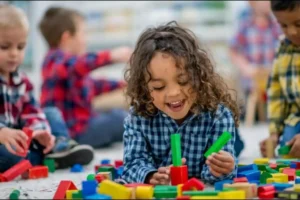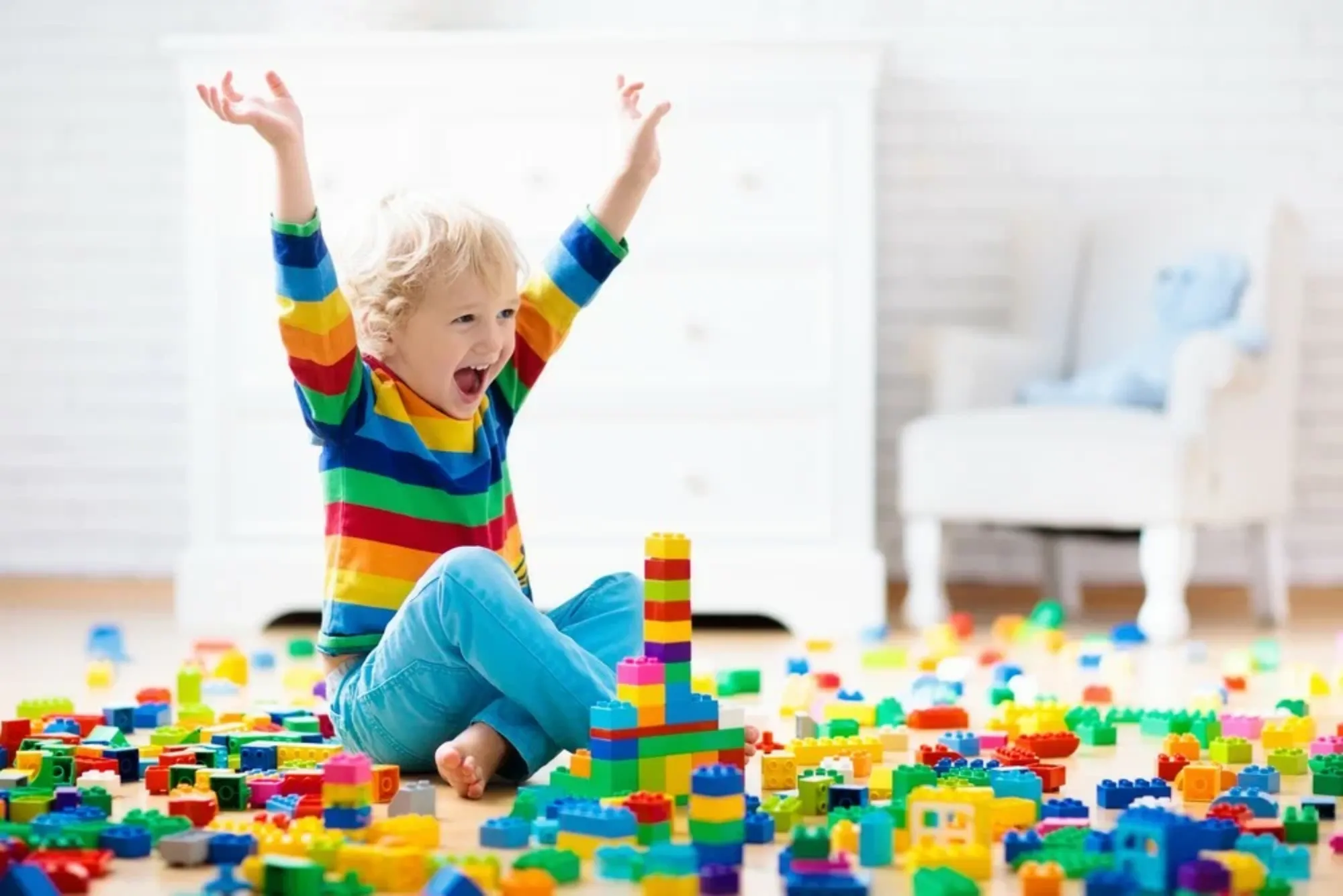The question, “Do kids need toys?” is one that often arises in conversations among parents, educators, and child development experts. Toys have become an integral part of childhood, with an extensive range of options available for children of all ages. While some parents believe that toys are essential for growth, others question their impact. This article delves into the various aspects of toys, examining their importance in children’s development, while offering insight into the different types of toys that can contribute positively to a child’s growth.
The Role of Toys in Emotional Development
Toys serve as valuable tools in supporting emotional growth in children. By interacting with toys, kids can express feelings, explore their environment, and gain a sense of control. In situations where children may not be able to verbalize their emotions, toys often become an outlet. Dolls, stuffed animals, and other toys can represent comfort, allowing children to build emotional resilience.
Moreover, toys can help kids manage feelings such as frustration, anxiety, and sadness. For example, a young child dealing with parental separation might find comfort in a favorite stuffed animal or toy, which can help alleviate anxiety. Through pretend play, children create scenarios in which they can process complex emotions, preparing them for future social situations.
Toys and Cognitive Development: Building the Brain
When considering “Do kids need toys?” it is essential to examine how toys influence cognitive development. Toys such as puzzles, building blocks, and board games challenge children’s minds and encourage critical thinking. These types of toys enhance problem-solving abilities, memory, and logical reasoning.
Building blocks, for instance, promote spatial awareness, as children learn to create different structures and balance elements to achieve their desired results. Puzzles teach children to identify patterns, shapes, and colors, improving both their visual memory and patience. Toys that challenge children to think and solve problems are invaluable tools for intellectual growth and form a foundational base for future learning.
Toys in Social Development and Interaction Skills
Social development is another crucial area where toys play an important role. When children engage in group play, they learn valuable social skills, such as sharing, cooperation, and empathy. Toys encourage kids to work together, negotiate, and resolve conflicts, which are critical aspects of social maturity. Playing with others also provides children with opportunities to observe social cues and responses, enhancing their understanding of others’ emotions and reactions.
Toys such as board games, dolls, and role-play sets encourage collaborative play, teaching kids essential skills for social interactions. Group games enable children to experience healthy competition, teaching them about winning, losing, and fair play. For children who may feel shy or introverted, toys can act as a bridge to forming friendships, as common interests in toys can lead to bonding moments with peers.
The Impact of Toys on Language Development
The question “Do kids need toys?” is also relevant when discussing language development. Toys that involve storytelling, role-playing, or sound mimicry can significantly contribute to vocabulary expansion and language comprehension. Toys that prompt dialogue, such as action figures or toy kitchens, give children the chance to create dialogues, invent scenarios, and narrate stories, enriching their vocabulary and enhancing their communication skills.
Books, educational games, and talking toys also serve as valuable resources for language development, as they expose children to new words and concepts. By interacting with these toys, children develop an understanding of grammar and sentence structure, which builds a strong foundation for literacy skills as they grow.
Types of Toys That Support Development
Not all toys offer the same developmental benefits. Recognizing the types of toys that are most beneficial can help parents make informed choices. The following are some popular types of toys and how they support child development:
Educational Toys

Educational toys are designed to stimulate learning and intellectual growth. These include items like alphabet blocks, counting games, and interactive electronic toys. Educational toys promote basic literacy and numeracy skills, supporting a child’s academic readiness.
Construction and Building Toys
Building toys such as LEGO sets and blocks encourage creativity and problem-solving. These toys help improve fine motor skills, spatial awareness, and critical thinking. They allow children to experiment with structure and form, helping them understand cause and effect as they construct and deconstruct objects.
Role-Playing Toys
Role-playing toys, including dollhouses, play kitchens, and costumes, allow children to explore different characters and scenarios. Such toys promote creativity and help children process real-life situations in a safe environment. By assuming various roles, children develop empathy, problem-solving skills, and a better understanding of social norms.
Musical Instruments and Sound Toys
Musical toys like tambourines, xylophones, and toy guitars offer children an introduction to rhythm, melody, and sound. These toys are excellent for auditory development and can foster an interest in music. Playing with musical toys helps children improve hand-eye coordination, auditory memory, and listening skills.
Outdoor and Physical Activity Toys
Outdoor toys like bicycles, balls, and jump ropes are essential for physical development. These toys encourage children to engage in physical activity, promoting cardiovascular health and motor skills. Outdoor play also provides mental benefits, as it offers children a break from screen time and an opportunity to explore nature.
Do Kids Really Need All These Toys?
While toys play a beneficial role in a child’s development, the sheer quantity of toys is not always an indicator of better outcomes. The concept of “quality over quantity” holds true when considering whether kids need toys. An overwhelming amount of toys can lead to overstimulation, clutter, and shorter attention spans. Children benefit most from a balanced approach, where they have access to a range of toys that support different areas of development without overwhelming them.
Rotating toys—putting some toys away and bringing them back later—can help keep a child’s interest fresh and focused. Parents should consider selecting a few well-chosen toys that encourage open-ended play rather than accumulating large quantities. With open-ended toys, children are given more creative freedom, as they can use the same toys in multiple ways, fostering long-term engagement.
Balancing Playtime with Other Activities
It’s important to note that while toys are beneficial, children also benefit from activities that do not involve toys. Reading, exploring nature, and participating in household activities are valuable experiences that can complement toy-based play. Kids need opportunities to learn about the real world, interact with family members, and engage in hands-on activities that do not necessarily involve toys.
Structured activities, such as sports, music lessons, or family game nights, provide children with a sense of structure and discipline that complements the free play encouraged by toys. Such activities foster social bonding and introduce children to new skills, further emphasizing the balanced role that toys should play in a child’s life.
Addressing Screen Time and Digital Toys
In the age of digital technology, the line between traditional toys and digital gadgets has blurred. The increased prevalence of tablets, video games, and digital learning tools raises the question of whether these digital “toys” are beneficial. While some educational apps and digital games offer cognitive benefits, excessive screen time has been linked to negative outcomes, including reduced physical activity, poor social interaction, and overstimulation.
Limiting screen time and encouraging a mix of physical, cognitive, and social activities can help create a well-rounded developmental environment. Parents should assess digital toys’ educational value and monitor screen time to ensure that children gain the benefits of interactive play without the negative side effects of excessive digital engagement.
The question “Do kids need toys?” is not one with a straightforward answer. Toys are valuable tools that support children’s emotional, social, cognitive, and language development. However, the benefits of toys are best realized when they are chosen thoughtfully and used in balance with other activities that promote healthy development.




